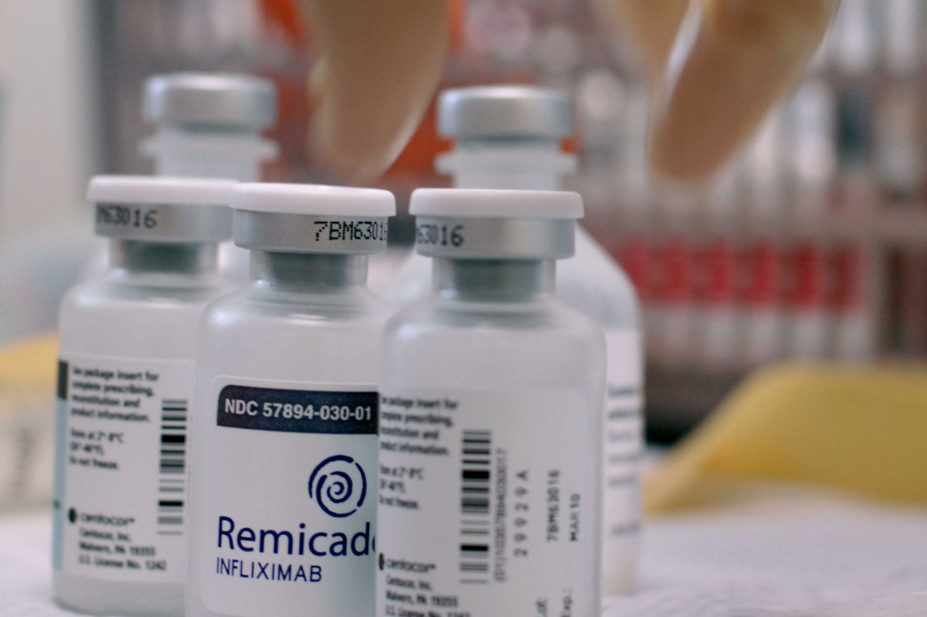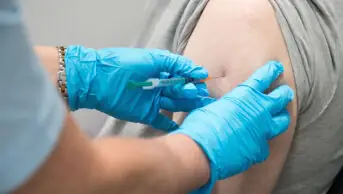
ZUMA Press, Inc. / Alamy Stock Photo
People with inflammatory bowel disease (IBD), who are treated with infliximab, have a reduced immune response to SARS-CoV-2 infection, research in Gut has suggested (7 April 2021)[1].
The researchers compared the antibody responses to SARS-CoV-2 of 6,935 IBD patients treated with the tumour necrosis factor-alpha inhibitor infliximab, or vedolizumab, a biologic IBD therapy not linked to impaired immunity.
Rates of symptomatic and confirmed SARS-CoV-2 infection were similar in both treatment groups. However, fewer infliximab-treated than vedolizumab-treated patients had detectable antibodies to the virus in their blood (3.4% (161/4,685) vs 6% (134/2,250); P<0.0001).
Among patients whose infection was confirmed by a swab test, 48% of those treated with infliximab subsequently developed antibodies compared with 83% of those treated with vedolizumab.
Patients treated with infliximab in combination with immunomodulators, such as thiopurine or methotrexate, had an even greater reduction in their immune response to SARS-CoV-2.
A weakened antibody response to infection, or to vaccination, may mean that patients treated with the tumour necrosis factor-alpha inhibitor are more susceptible to recurrent infection and could drive the evolution of new variants of the SARS-CoV-2 virus, the researchers warned.
“Serological testing and virus surveillance should be considered to detect suboptimal vaccine responses, persistent infection and viral evolution to inform public health policy,” they concluded.
- 1Kennedy NA, Goodhand JR, Bewshea C, et al. Anti-SARS-CoV-2 antibody responses are attenuated in patients with IBD treated with infliximab. Gut 2021;70:865–75. doi:10.1136/gutjnl-2021-324388


